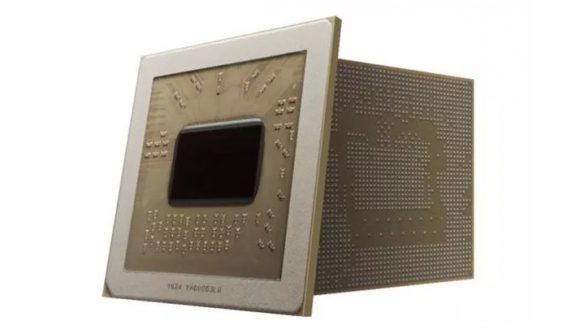intel/AMD still dominated PC/server microprocessors, beside its just an example US has many company thats top notch, xilinx/intel/amd/TI/ etc etc. semiconductor is very broad area. SK/taiwan is good at certain area, but alot area are dominated by various US company. attract talent with experience is the fast way to speed up R&D, short from direct purchase.
And you think China does not have domestic microprocessor they do If I am not wrong there are 3 or 4 competing microprocessor right now about to go on production Here is one of them
INTEL does not even have AI chips Nvidia does So yeah INTEL is outdated now. AI is the next big thing in semiconductor and China is leading Once in a while there is this paradigm change that completely leaving existing champion in the dust like SOC, AI, 5G
China’s new 8-core KaiXian x86 CPU is capable of matching Intel’s 14nm Core i5
The Chinese government has been working with VIA Technologies to create their own x86 processor that is able to deliver genuine PC performance on par with the Intel chips it’s trying to replace. The new KaiXian KX-6000 CPU from Zhaoxin has been demonstrated for the first time, promising a 50% performance boost over its previous chip, and the potential to rival a Kaby Lake Core i5 processor.
That’s pretty impressive given that we’re talking about a modern 14nm Intel i5 being given a run for its money by a 16nm Chinese chip. VIA is one of the few companies in the world with an x86 license able to create new processors that are compatible with the existing PC environment, and the Zhaoxin joint venture with China’s government seems to be paying off.
We don’t know when actual commercial shipments of the new KX-6000 processors are likely to start, but it’s expected to be a 2019 launch. Though because the CPUs are being funded by the government, it’s unlikely that you’ll see the chips on the shelves of Amazon or PC World anytime soon, or bother our guide to the
either.
has a breakdown of the KX-6000 processor, detailing the differences between the
earlier in the year. That was another eight-core processor, but was built on the 28nm lithography and could only hit around 2GHz. That meant its competitive performance was way down compared to the likes of Intel or AMD’s x86 chips.
Zhaoxin KX-6000 Intel Core i5 7600
Cores 8 4
Threads 8 4
Clockspeed 3GHz 4.1GHz
L2 cache 8MB 6MB
iGPU DirectX 11.1 DirectX 12
Lithography 16nm FinFET 14nm Intel
But by using TSMC’s 16nm FinFET production process Zhaoxin’s new CPU is capable of hitting around 3GHz with its eight cores and sit inside a much smaller slice of silicon. Like the Intel i5 it’s supposedly competing with, the KX-6000 has an integrated GPU, in itself compatible with DirectX 11.1 gaming. It also sports an integrated memory controller for DDR4 RAM up to 3,200MHz, as well as interfaces for the standard I/O too.
In short, it should be completely compatible with any Windows environment because of its x86, 64-bit nature, and the support of the SSE 4.2 and AVX instruction sets.
While the performance claims of the KX-6000 CPU are yet to be independently confirmed, if it’s offering a 50% improvement from one generation to the next, in just a year, it’s going to be fascinating to see what China and VIA can come up with next. And maybe if they get
really competitive we’ll see the chips eventually setting foot outside of the People’s Republic.

